Processing Payments
If you sign up for Global Payment and are using AF360, you do not need to integrate Global Payments – it will be done for you automatically by HiBid.
(This step assumes your settlements have already been created)
Any errors you get during this process mean that those bidders either have insufficient funds or the bank is blocking the payment. So you will need to call/email them asking them to either handle that with the card on file or pay with cash at pick up. If cash at pickup is not an option for them, you can send them a payable invoice link. Either way, reach out to them to see what they can do.
- To mark an individual’s settlement as paid with a balance of $0.00, simply add a receipt to the bidder’s settlement. To do this, click on ‘View Settlement’ next to the bidder’s settlement.

- Select ‘Add Receipt’ on the right, then choose the payment type the bidder is using.

- Review all the charges to ensure they are correct, enter the amount paid, and then select ‘Pay with HiBid Credit Card’ or the appropriate option based on the payment method (Global Payments). Then save your changes.
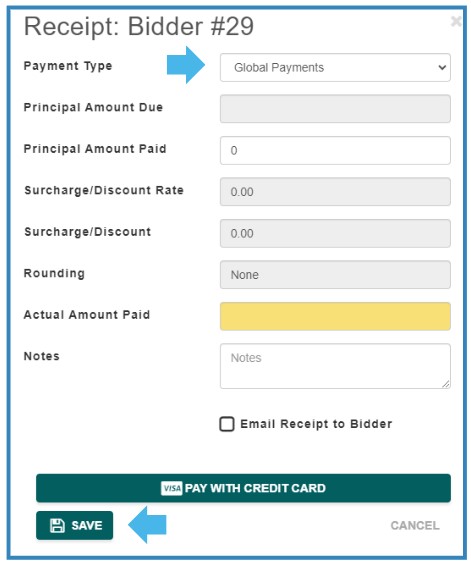
Batch Processing
Batch Processing for Settlements – You can now easily process payments using selection checkboxes in the Settlements section. Simply select the bidders you want to charge by checking the boxes next to their names, then click the Batch Process button to process all selected payments at once. This feature streamlines payment management, making it faster and more efficient to handle multiple transactions.
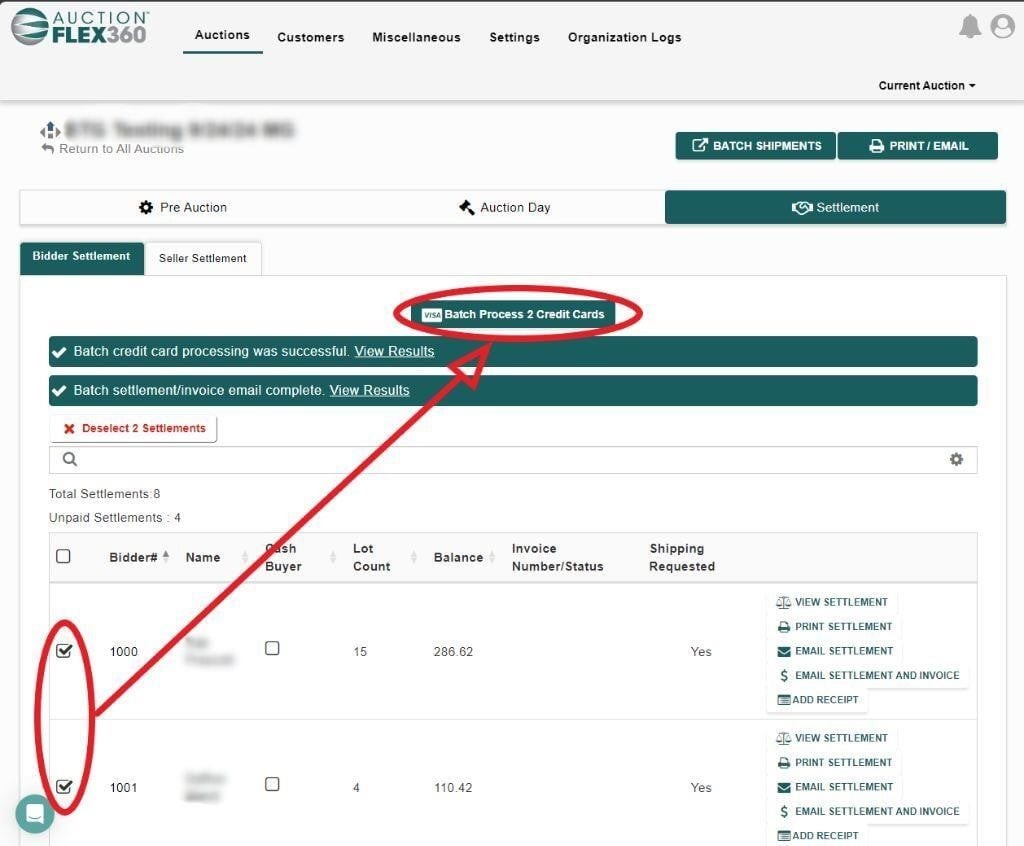
Global Payments Tips & Tricks
Global Payments Invoices
When you check the “Use Global Payments Invoices” box, a “Global Payments – Credit Card” payment type is added automatically. Do not delete this payment type. Deleting it will result in errors when processing refunds or creating Global Payments invoices.
Fix for Refunds Without GP Invoice Object Error – Some customers have encountered an “Object Object” error when attempting to process refunds, caused by a missing referenced GP invoice. This issue typically occurs when batch processing settlements before all lots have been fully clerked. To prevent this, we’ve added a new safeguard: if you try to batch process before all lots are clerked, you’ll now see a helpful message guiding you to complete the clerking process first. This ensures that GP invoices are properly generated and linked, so refunds can be processed smoothly without errors.
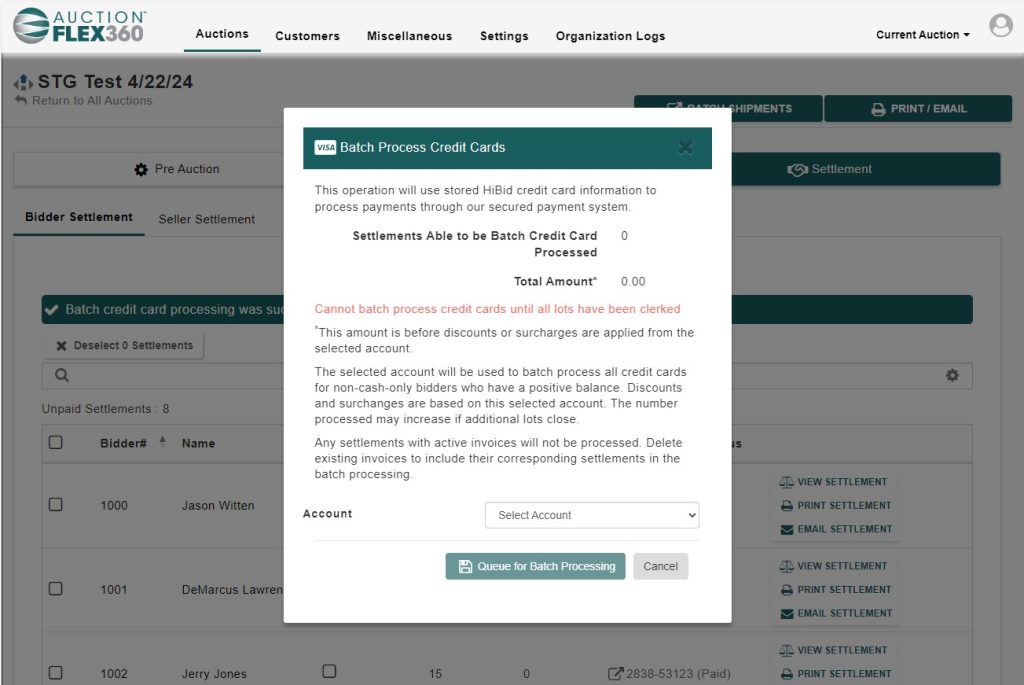
Managing Global Payments Invoices and Card on File Payments – If you send a Global Payments invoice but the customer ends up paying with the card on file, the invoice status won’t automatically update. This could leave you with a $0 balance but an incorrect invoice status, such as “Unpaid.”
To avoid this issue, if your customer plans to pay using a stored card, be sure to delete the invoice before completing the transaction. If you skip this step, you won’t be able to process a refund for that transaction through AF360, which could complicate things down the line. Following this process ensures that everything stays accurate and refunds can be managed easily if needed.
AuctionFlex 360: Restricting Card Testers for Global Payments Invoices (IMPORTANT UPDATE)
Please read carefully, as this update may impact your bidders.
In AuctionFlex 360, we’ve implemented the same restriction as in AuctionFlex Legacy to prevent fraud from card testers. If a bidder fails to pay a Global Payments invoice after 10 attempts, the invoice will lock down and block further payment attempts. However, there are some key differences in AuctionFlex 360 that you should be aware of:
Key Points to Note:
- After 10 failed payment attempts, we’ll send you an email notifying you that the invoice is locked and identifying the bidder. Additionally, all of that bidder’s invoices with your auction company will also be locked—not just the one they were attempting to pay. This only applies to invoices within your organization and does not affect other Auction Flex 360 companies.
- For example, if the bidder has invoices across multiple 360 companies, they’ll be locked out of all their invoices with your company after 10 failed attempts, but they’ll still have 10 attempts per company with other auctioneers.
- To manage this, a flag is automatically checked on the bidder’s record when they reach the 10-attempt limit. The bidder won’t be able to try paying any of their invoices until you manually uncheck this flag.
- If you find that the bidder just needs help, you can go to their record in AuctionFlex 360, uncheck the flag, and allow them to attempt payment again for any of their invoices within your organization.
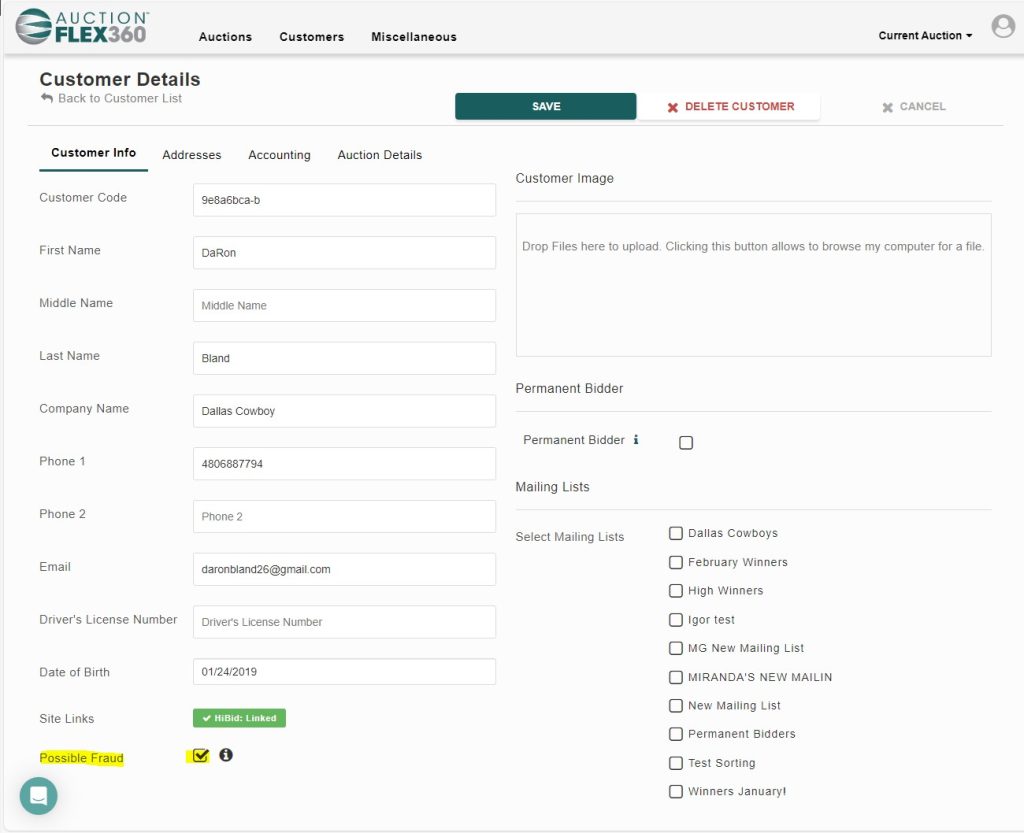
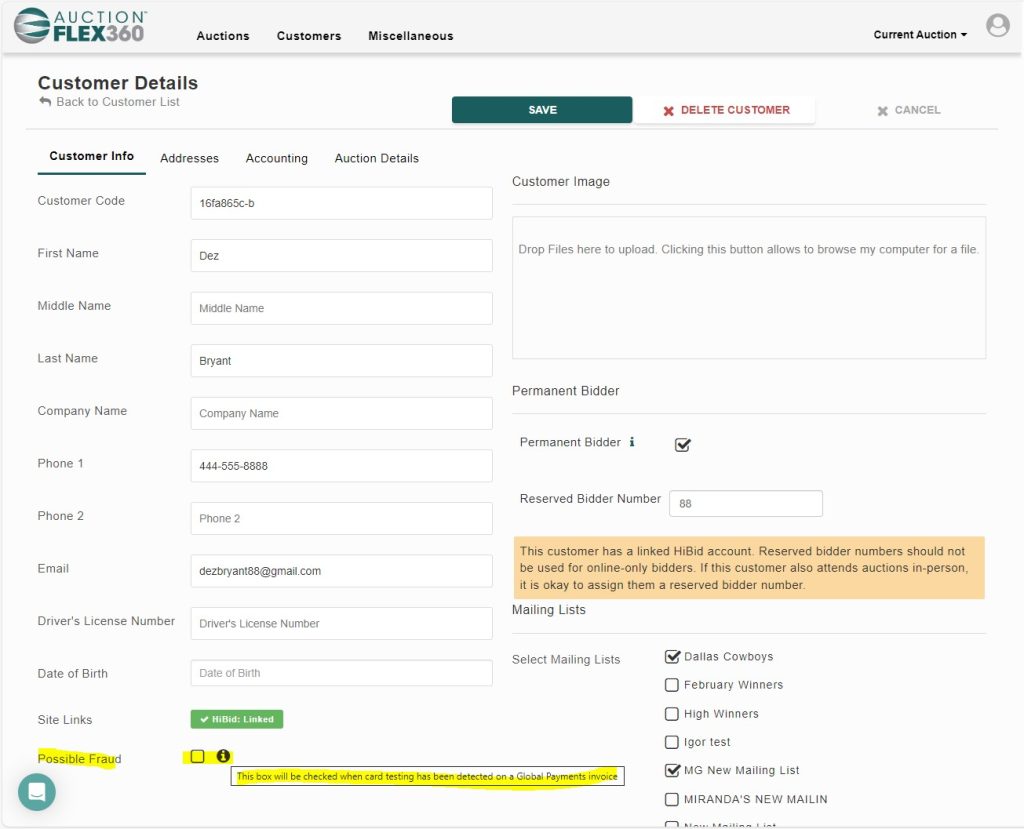
Additional Note:
This system is not designed to block bidders from participating in your auctions. If you wish to restrict a bidder from buying from you, you’ll need to manage that process separately through my.hibid.com and carefully vet bidders during the registration process.

